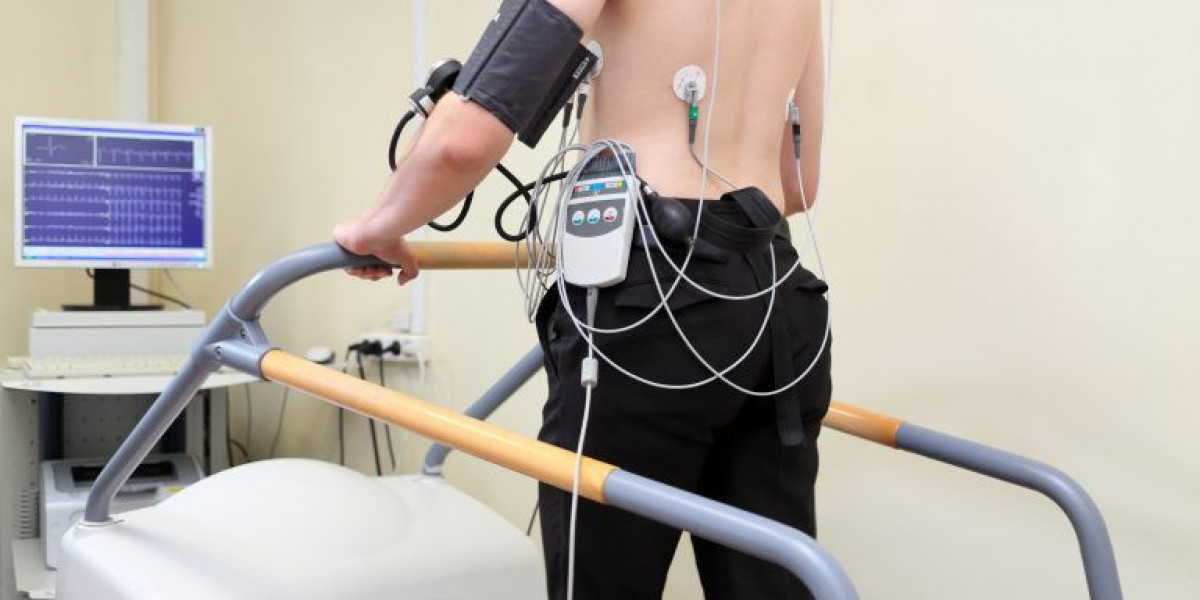Treadmill Test Near Me: What You Need to Know About This Life-Saving Procedure
When it comes to your heart health, waiting for symptoms is never a wise option. One of the most effective diagnostic tools to assess heart function under physical stress is the treadmill test. If you’re searching for a trusted diagnostic center for a treadmill test near me, it’s important to understand what this test involves, how to prepare, what the results indicate, and why timely testing matters.
EcoTown Diagnostics in Bangalore offers advanced cardiac assessments that help detect heart issues early. Whether you’re already experiencing symptoms or just want to rule out potential risks, this test can be the key to peace of mind.
Let’s explore the complete picture of the treadmill stress test and why it plays a crucial role in cardiovascular diagnostics.
What is a Treadmill Stress Test?
Understanding the Basics
A treadmill stress test, also called an exercise stress test, evaluates how your heart performs during physical activity. It involves walking on a treadmill with gradually increasing intensity while your heart rate, breathing, blood pressure, and ECG (electrocardiogram) are monitored.
The idea is simple: your heart may function well at rest, but problems like blocked arteries often reveal themselves during exercise. That’s why this test is used to uncover heart issues that regular resting tests might miss.
Why Do Doctors Recommend This Test?
Detecting Heart Disease Early
Cardiologists may recommend a treadmill test to:
Diagnose coronary artery disease
Assess the severity of existing heart conditions
Evaluate symptoms like chest pain or shortness of breath
Check heart rhythm irregularities
Monitor treatment effectiveness
This non-invasive test acts like a sneak peek into how your heart behaves under pressure.
How to Prepare for a Treadmill Stress Test
Important Guidelines to Follow
Here’s how to get ready:
Clothing: Wear comfortable clothes and shoes suitable for walking or light jogging.
Food & Drink: Avoid eating or drinking for at least 2-3 hours before the test.
Medication: Inform your doctor about any medications you’re taking—some may need to be paused.
Mental Readiness: Be relaxed. It’s not a competition—just a gradual increase in activity to assess your heart.
What Happens During the Test?
Step-by-Step Process
Preparation: Electrodes are attached to your chest to monitor your heart via ECG.
Baseline Reading: You’ll stand still to record your resting heart rate and blood pressure.
Exercise: You start walking on the treadmill. The speed and incline increase every few minutes.
Monitoring: Throughout the test, the technician keeps an eye on your vitals.
Cool Down: Once your limit is reached or symptoms occur, the treadmill is stopped for recovery monitoring.
The entire process usually takes about 30-45 minutes.
Is the Test Safe?
Risks vs. Benefits
The treadmill test is generally safe and performed under expert supervision. Some may feel fatigued, dizzy, or experience chest discomfort, but medical personnel are on hand to manage any issues immediately.
If you have conditions such as unstable angina or severe aortic stenosis, your doctor might recommend alternative tests like a nuclear stress test or stress echo instead.
What Do the Results Mean?
Understanding the Outcome
Normal Result: Your heart shows no abnormal rhythm or blood flow problems during exertion.
Abnormal Result: If changes in heart rhythm or ST-segment shifts are noticed, it could suggest blocked arteries or other cardiac concerns.
Your doctor may recommend further imaging or treatments depending on the result.
When Should You Get a Treadmill Stress Test Done?
Listen to Your Body and Doctor
If you:
Experience frequent chest pain or shortness of breath
Have risk factors like diabetes, hypertension, or family history
Are about to begin an exercise program after a long time
Are undergoing treatment for an existing cardiac condition
…it’s the right time to consult your cardiologist and consider getting a stress test.
How Often Should You Repeat It?
Depending on Risk and Condition
There’s no universal schedule. Some patients with diagnosed heart disease may need annual testing, while others might only need it once every few years or after a specific health episode.
Where Can You Get It Done?
Looking for a reliable diagnostic center? If you're searching online for a treadmill test near me, ensure the lab is certified, has experienced cardiologists, and uses updated equipment for accurate results.
Final Thoughts
Your heart doesn’t speak—but it sends signals. A treadmill stress test helps decode those signals before they escalate into serious problems. It’s a smart, proactive approach to long-term health. If you're thinking, Where can I find a reliable treadmill test near me?—start your journey with trusted professionals who prioritize precision and care.
FAQs About the Treadmill Stress Test
1. What is the purpose of a treadmill stress test?
It helps evaluate how well your heart performs under physical stress and detects hidden cardiovascular issues.
2. Is fasting required before the test?
Yes, it’s usually recommended not to eat or drink anything 2–3 hours before the test to avoid discomfort and get accurate results.
3. Can I take my regular medications before the test?
Some medications may affect the results. Always consult your doctor for guidance before the test.
4. Will the test be painful or uncomfortable?
You may feel tired or slightly dizzy due to exertion, but the test itself is not painful.
5. How long does the entire test take?
The full procedure, including prep and cool-down, usually takes around 30 to 45 minutes.
6. What happens if abnormal results are found?
Your doctor may suggest additional tests like an echocardiogram or angiography for a clearer diagnosis.
7. Can older adults or those with health conditions take the test?
Yes, but it depends on the individual’s condition. Doctors may adjust the protocol or choose alternative testing.
8. How soon will I get the results?
In most cases, results are available the same day or within 24 hours, depending on the facility.
9. Can I resume daily activities after the test?
Yes, most people can go back to normal activities unless advised otherwise by their physician.
10. What equipment is used during the test?
A treadmill, ECG machine, and blood pressure monitor are used to record heart function during exercise.







